All-solid-state Sodium Ion Secondary Battery
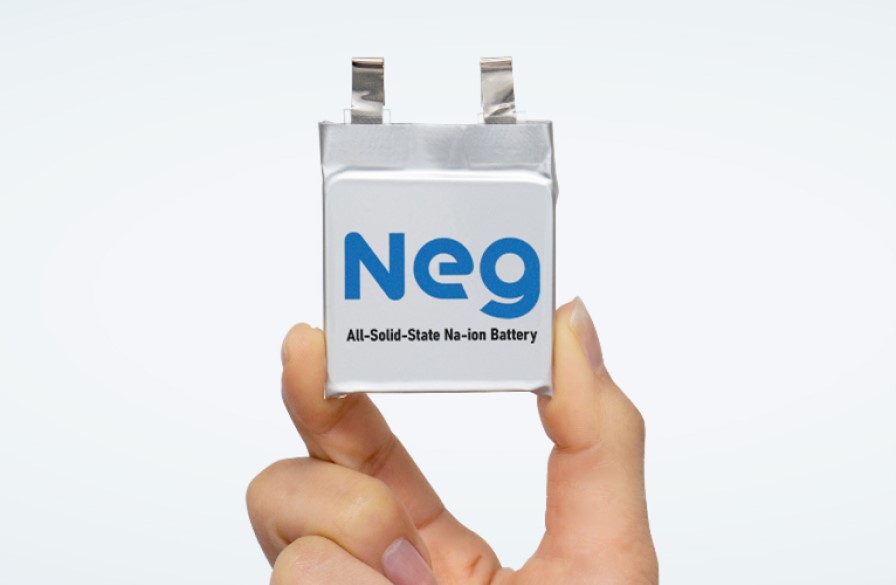
Our all-solid-state secondary batteries are designed for a wide range of applications, from compact to large-scale, and from specialized to general-purpose use. Engineered for high safety, they deliver stable performance across low and high temperatures while enabling larger sizes and higher densities. The main components—cathode, anode, and solid electrolyte—are all made from stable oxide materials. These batteries feature strong integration using our proprietary technology utilizing glass softening property, ensuring highly efficient ionic conduction paths.
Applications
-
Batteries designed for extreme conditions such as space (vacuum and low temperature), marine (high pressure and low temperature), and medical (high temperature)
-
Batteries for electronics, mobility, and stationary applications that require high safety and battery design flexibility
-
Energy harvesting systems that utilize light, heat (temperature differences), vibration, and others as energy sources
-
Electronic circuit boards (capable of withstanding solder reflow processes up to 300°C)
-
Wireless solutions for devices operating at ultra-high temperatures exceeding 100°C
-
Environments or equipment where corrosive gas generation is a concern

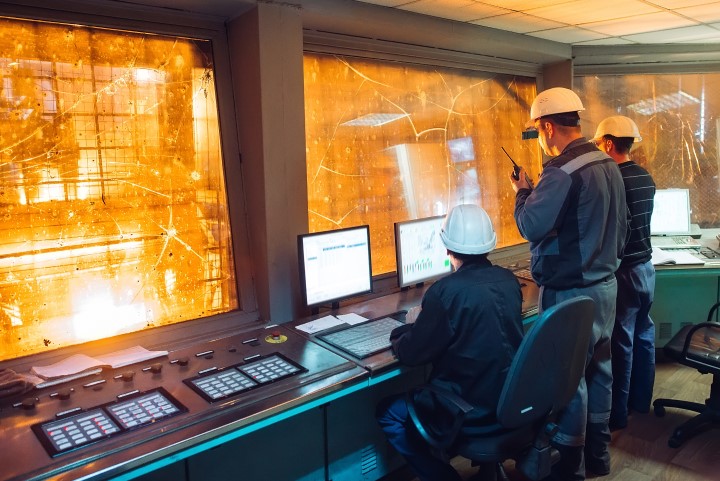
Features
-
Practical operating voltage and long lifespan
Operates at a practical level of 3V. Proprietary technology ensures strong integration of the solid electrolyte and electrodes, resulting in a long lifespan battery. -
Wide operating temperature range
Capable of driving industrial equipment and transferring large amounts of data in harsh environments such as low temperatures, high temperatures, and vacuum conditions. The heat-resistant package enables operation in ultra-high temperature ranges exceeding 100°C (up to 200°C). -
No risk of ignition or toxic gas generation
The main components—cathode, anode, and solid electrolyte—are made from stable oxide materials. Without liquid electrolytes, the risk of ignition is eliminated. Additionally, there is no risk of toxic gas generation due to the absence of sulfides, chlorides, and fluorides. -
Free from rare metals
Contains no rare metals such as lithium, nickel, or cobalt. -
Battery design flexibility
Supports easy integration, scalability to larger sizes, and high-capacity configurations, providing flexibility for various battery designs. -
Chargeable with a low current
Supports charging at low current rates, enabling maintenance-free power generation and storage systems when combined with energy harvesting technology. -
High over-discharge resistance
Consists of materials highly resistant to over-discharge, ensuring the battery does not deteriorate even when discharged to 0V.
Specifications
Standard Battery
Properties
-
2.9V
-
80mAh
-
Custom specifications, including higher capacity, are available upon request.
Heat-resistant battery
Structure of heat-resistant package
The package structure ensures a high degree of hermeticity through glass sealing technology.
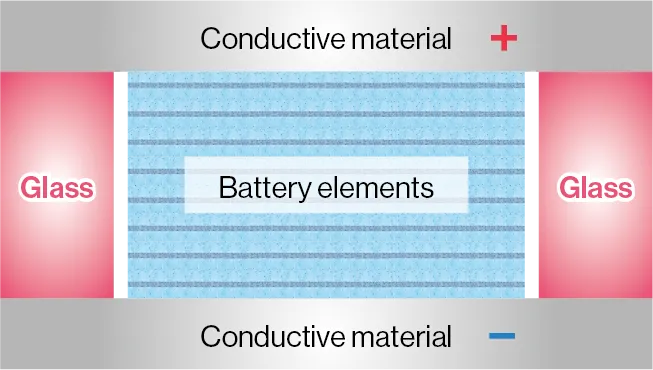
Charge-discharge cycle test data (200°C)
Demonstrates excellent charge-discharge cycle properties under high-temperature conditions of 200°C.
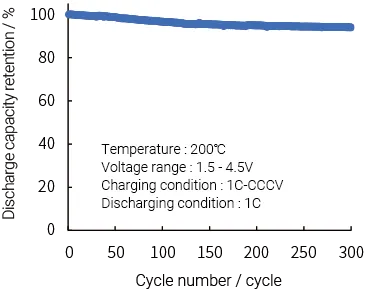
High-speed charge-discharge test data (200°C)
Capable of high-speed charge-discharge cycles at a rate of 20C under high-temperature conditions of 200°C.
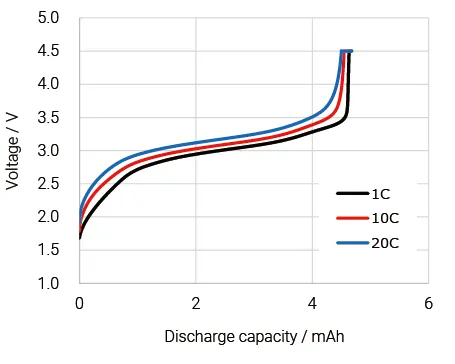
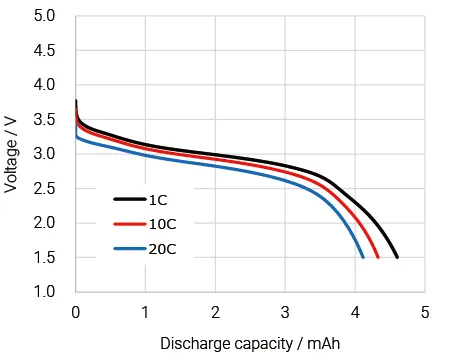
-
Charge rate test: Charge curves obtained from performing 4.5V-CCCV charging at different rates from a discharged state
-
Discharge rate test: Discharge curves obtained from performing 1.5V-CC discharging at different rates from a charged state
Properties
| Properties | Standard Battery | Heat-resistant Battery | ||
| Dimensions | Length | mm | 60 | 60 |
| Width | mm | 42 | 50 | |
| Thickness | mm | 10 | 1 | |
| Weight | g | 30 | 5 | |
| Nominal voltage | V | 2.9 | 2.9 | |
| Nominal capacity | mAh | 80 | 4 | |
| Charge | Charging method | CCCV | CCCV | |
| Upper voltage limit | V | 4.5 | 4.5 | |
| Standard charging current | mA | 8 | 0.4 | |
| Discharge | Discharge cutoff voltage | V | 1.5 *1 | 1.5 *1 |
| Standard discharging current | mA | 1.6 | 0.08 | |
| (ref.) Discharging peak current | mA | 400 | 20 | |
| Operating temperature range | ℃ | -40~+100 | -40~+200 *2 | |
-
The material's resistance to over-discharge ensures that the battery does not deteriorate even when discharged to 0V.
-
The battery can withstand temperatures above 200°C and can be used at 300°C for short periods.
Event Information
We will be exhibiting at the following events.
![BATTERY JAPAN [March] 20th Int’l Rechargeable Battery Expo](/en/assets/BJ251105_320x100_en.webp)
BATTERY JAPAN [March] 20th Int’l Rechargeable Battery Expo
Period: Mar 17-19, 2026 Location: Tokyo Big Sight, Japan